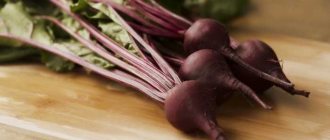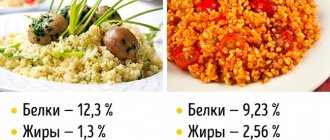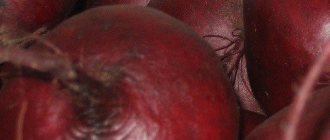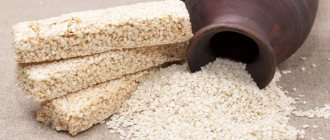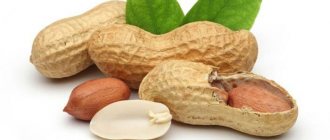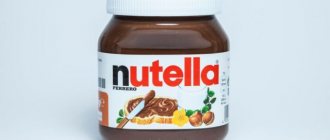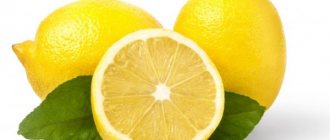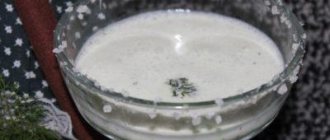Red beets are not a simple vegetable and are somewhat controversial. For, on the one hand, it is believed that this root vegetable has the power to heal a person even from the most terrible and merciless diseases in the world, and on the other hand, scientific research does not find anything supernatural in beets. Which gives reason to consider beets to be the most ordinary vegetable, not possessing even half of the healing properties that various healers and traditional healers attribute to it.
It is clear that the truth most likely lies somewhere in the middle. Therefore, we will have to experience the beneficial properties of red beets on our own health (if life forces us, of course). Or, if you’re lucky, you can see how beets help heal and restore the health of our close friends, relatives, neighbors and everyone who is ready to share their personal experience of treating this root vegetable.
A little history and interesting facts about beets
If we turn to history, we will find that in the Middle Ages, the Eastern Slavs sincerely believed: beets can protect the human body even from the plague! This belief was explained very simply - the plague epidemic never managed to “swallow” the peoples of Eastern Europe (who passionately loved beets), although in Western Europe the plague raged in full.
As we said above, modern researchers have not yet found in beets the miraculous properties that our ancestors endowed them with, but it is reliably known that this root vegetable contains substances that can effectively fight cancer cells. True, the vast majority of vegetables and fruits have anti-cancer properties, so beets cannot stand out with this fact.
The most interesting fact, in our opinion, is that beet tops on average contain twice as many useful substances as the root vegetable. Moreover, this applies not only to chard (leaf), but also to the most common table beet, which we use to prepare borscht, herring under a fur coat and other “red” dishes.
Hence the conclusion: fresh beet leaves should not be thrown away, but eaten as a salad, or in some other way...
By the way, this is exactly what people did in ancient times. At first, only wild plants were eaten, but a little later - around the second millennium BC - Swiss chard began to be cultivated. Well, for the sake of root crops, beets began to be grown only in the 4th century BC. (on the islands of the Mediterranean Sea).
Beet root crops came to Russian lands around the 10th century AD. In Western Europe, beets appeared three centuries later. Three centuries later, beets began to be divided into fodder and table beets, and in the 18th century, sugar beets were also separated.
Nowadays, beets are eaten everywhere, both by people and pets. And about a third of all sugar in the world is now produced from sugar beets.
What can you cook from beets?
Since childhood, everyone is familiar with such vegetable dishes as vinaigrette, beetroot soup, borscht, and herring under a fur coat. In addition to them, a lot of tasty and varied food is prepared from the product. Beets are prepared stewed, fried, baked, and added to snacks and salads. It is very tasty to eat the vegetable pickled or pickled, as part of pies, cutlets, cupcakes. After heat treatment, the beneficial properties of beets do not disappear.
Boiled
Dishes using red root vegetables will look great at everyday and holiday tables. The easiest way is to prepare salads from beets with the addition of other vegetables. These can be modern dishes and old, time-tested ones. Many people wonder how long to cook beets for salad? Approximate time - from 30 to 90 minutes. For an example, check out the “Appetizing” salad recipe.
- root vegetable - 2 or 3 pcs.;
- carrots – 6 pcs.;
- eggs – 4-5 pcs.;
- potatoes – 6 pcs.;
- salt, herbs, spices, mayonnaise - at your discretion.
- Thoroughly clean the beets from dirt and cook in their uniforms. Do the same with potatoes. When vegetables are cooked, cool.
- Boil hard-boiled eggs.
- Grate the boiled vegetables, mix each with salt, pepper, and mayonnaise.
- Place on a plate in layers: first potatoes, then carrots, eggs, beetroot. On top is mayonnaise.
Chemical composition of beets
The chemical composition of beets greatly depends on the fertility of the soil in which they grew. Which cannot but affect the results of research on this root vegetable published in the scientific community...
So, for example, some scientists claim that the chemical composition of red beets contains practically no microelements, but there is quite a lot of folic acid, while others say that beets are full of chromium, molybdenum, vanadium and other micronutrients, but there is practically no folic acid.
Moreover, the amount of macroelements (calcium, potassium, phosphorus, sodium, magnesium), as well as B vitamins, is almost identical in all studies.
| Magnitude | Quantity per 100 grams |
| Beet calories | 42 kcal |
| Fats | 0.1 gram |
| Squirrels | 1.5 grams |
| Water | 86 grams |
| Alimentary fiber | 2.5 grams |
| Organic acids | 0.1 gram |
| Mono- and disaccharides | 8.7 grams |
| Vitamins | A, B1, B2, B5, B6, B9, C, E, PP, Beta-carotene |
| Minerals | Potassium (288 mg.), Calcium (22 mg.), Magnesium (46 mg.), Sodium (46 mg.), Phosphorus (43 mg.), Iron (1.4 mg.). |
Where does this leave us? To one of two:
1) you can choose the results of the study you like most and be guided by them in life
2) or take into account the similarities and completely ignore controversial indicators, and also observe your feelings when eating beets
You can also turn to traditional medicine, but this option is somewhat out of line with the “scientific” approach to evaluating beets. Therefore, we will not recommend it. Although, perhaps this is what will help you in the end...
Calorie content of beets (boiled and raw)
Separately, I would like to talk about the calorie content of beets. Because there are some features that everyone who monitors their weight and blood sugar levels should know...
Let's start with the fact that boiled beets stimulate the appetite, but raw ones do not. Why? Yes, because the glycemic index of beets (the ability to increase blood sugar) increases greatly during heat treatment. If we express this in numbers, we get the following picture:
- glycemic index of raw beets – about 30
- glycemic index of boiled beets – about 65
- Swiss chard is completely harmless in this regard, since its glycemic index is approximately 15
As a result, some nutritionists believe that boiled beets greatly increase blood sugar levels and are therefore contraindicated for people with diabetes. However, this is not quite true. After all, the calorie content of boiled beets is only 44 kcal per 100 grams (raw - 42 kcal), and not everyone can eat more than 150-200 grams of boiled beets in one sitting.
In addition, no matter how many calories are in boiled beets, and what its glycemic index is, it should be borne in mind that in cooking, beets are almost always mixed with vegetable oil, high-protein foods or unsweetened vegetables. Therefore, any dish with red beets has a low glycemic index and practically does not affect blood sugar levels.
Benefits for weight loss
The introduction of beets into the diet promotes weight loss. But it is important to remember that diet alone will not achieve good results. To get the figure of your dreams, or at least get closer to it, you need to properly combine a balanced diet and exercise, follow a sleep and rest schedule, and drink enough water per day.
Helpful information! On average, a person should drink from 1.5 to 2.5 liters of water per day, depending on body type and weight. Drinks such as tea, coffee and juices do not count; we are talking about pure water.
Assimilation
The beneficial properties of beets are determined by one important feature - the body’s ability to absorb one or another component. Some tropical fruits, such as pineapple or mango, which should be beneficial, are simply not absorbed in the body of a Russian resident. But beets in this regard are a win-win vegetable, useful in any form: raw, boiled, stewed, baked.
Regarding the beneficial properties of beets for the body during weight loss, the following can be said. If you introduce red root vegetables into your daily diet, after just a couple of weeks of consumption you will notice an improvement in your well-being, which will be accompanied by the full functioning of all internal organs. And the most obvious change will be the state of the nervous system - excessive nervousness and irritability will disappear.
Taste properties
The vegetable itself is saturated with sweet glucose, which serves as a catalyst for improving mood (especially if it concerns sugar beets), but at the same time remains dietary. Glucose stimulates brain function, increases activity and supplies energy to the body.
But the most valuable element in the root vegetable for starting the weight loss process is considered to be betaine. This is a biological substance that is often used in the form of dietary supplements that are used for weight loss. The invigorating properties of natural juice from fresh beets have already been mentioned in the previous section.
In addition, betaine normalizes liver function, which is directly related to proper metabolism. In simple terms, if you want to speed up your metabolism, in addition to drinking water per day and exercising, eat beets. It will serve as a natural metabolic catalyst. When dieting or drying the body, which is closely related to taking large amounts of protein in food, betaine will promote more active absorption of protein in the intestines. Betaine accelerates the activity of fat oxidative processes - that is, fat deposits are burned many times faster.
Note: regular consumption of dietary beetroot dishes will not only help you lose weight, but will also prevent the accumulation of fat in the female and male body thanks to such an element as the polyphenol curcumin. This happens due to the properties of the component to suppress the growth of blood vessels in fatty tissues.
Cellulose
In addition, it is worth remembering the properties of fiber, which creates additional volume in the intestines without excess calories and suppresses the feeling of hunger. Another important point is lowering cholesterol and blood sugar levels.
You can make many dishes, drinks, cocktails, smoothies from beets; they are great for soups and salads. You can eat the root vegetable grated raw or after heat treatment, without worrying that the beets have lost their beneficial properties. The main thing is to prepare the product correctly.
© slawek_zelasko — stock.adobe.com
Red beets: benefits and harm. What more?
Looking ahead a little, let's say that there are clearly more beneficial properties in red beets than harm. However, there are still some contraindications to normal consumption of beets (more on them below). Now let’s talk in more detail about the benefits and harms of beets...
The scientifically proven benefits of beets for the body are as follows:
- beets increase hemoglobin, although not with the help of iron, but with the help of substances involved in the production of hemoglobin (copper, vitamin B1)
- cleanses blood vessels from “bad” cholesterol, thereby preventing and curing atherosclerosis (with long-term regular use)
- strengthens the walls of capillaries and at the same time increases their elasticity
- dilates blood vessels, thereby lowering blood pressure (note to hypertensive patients)
- easily removes excess water from the body (relieves swelling)
- reduces the risk of prostate adenoma and rectal cancer
- has a laxative effect (increases peristalsis of the gastrointestinal tract), however, it should be borne in mind that beets help against constipation only when a person drinks a sufficient amount of liquid
- adsorbs and removes waste and toxins from the body
- regulates lipid metabolism (protects the liver from obesity)
- reduces the body’s recovery time after physical and mental stress, and also increases a person’s endurance (albeit slightly)
- stimulates brain function, thereby “pushing back” its premature aging and drying out
As you can see, the list of beneficial properties of red beets is very long. However, it should be noted that raw and boiled beets have different effects on the body.
What is the difference?
Let's figure it out. What are the benefits of raw beets?
In general, the beneficial properties of raw beets coincide with the list above. However, there is something special about it:
1) raw beets retain all vitamins
2) raw fiber has twice the “penetrating” and adsorbing power
3) low glycemic index (but we already wrote about this)
On the other hand, there is an opinion that fresh beet juice contains some harmful compounds that can harm human health. In this regard, it is even recommended to leave freshly squeezed beet juice for several hours (to give time for harmful substances to evaporate). In fact, the faster you eat raw beets (drink juice), the more vitamins will remain in them. For vitamins are destroyed not only under the influence of high temperature, but also from contact with air, light and water.
And the “harm” of freshly squeezed beet juice lies in its ability to trigger an emergency cleansing of the body (destruction of fat deposits with the inevitable release of toxins into the blood).
What are the benefits of boiled beets?
The benefits of boiled beets for the body, despite the high glycemic index, are undeniable. Moreover, in some respects, boiled beets are even healthier than raw ones. After all, during cooking, only three vitamins are mainly destroyed: C, B5 and B9 (folic acid). The remaining vitamins and minerals reach the human stomach practically intact.
On top of that, all the valuable components of beets, which are not destroyed by high temperature, become more accessible to our body (due to the partial destruction of the fiber structure).
And one more thing... boiled beets contain much less nitrates than raw ones. Because the lion's share of them is destroyed when heated or turns into a decoction.
Now you know how beets are useful and whether it is worth boiling them before eating. Let's look at the contraindications...
Vitamins
The benefits of beets have long been known to everyone. A large number of medicinal properties are contained in the root of the plant and in the leaves. Beets are a vitamin product. Let's look at what vitamins are in raw red beets and how much they contain.
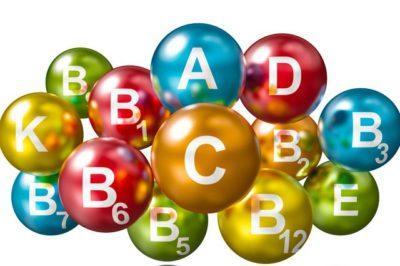
Vitamin content:
- Vitamin A – 0.002 mg.
- Vitamin B3 – 0.4 mg.
- Vitamin B9 – 0.013 mg.
- Vitamin B1 – 0.02 mg.
- Vitamin B5 – 0.1 mg.
- Vitamin C – 10 mg.
- Vitamin B2 – 0.04 mg.
- Vitamin B6 – 0.07 mg.
- Vitamin E – 0.1 mg.
Also, the beneficial properties are due to the content of trace elements and minerals:
- copper;
- iodine;
- boron;
- gland;
- manganese;
- cobalt;
- vanadium;
- fluorine;
- molybdenum;
- rubidium;
- zinc
Iodine helps people suffering from goiter, atherosclerosis and obesity. And chlorine, which is also contained in this plant, has a cleansing effect on the liver, kidneys and gall bladder.
Harm of beets and contraindications to its consumption
The usefulness of beets is questioned only in a few cases:
- for chronic diarrhea (has a laxative effect)
- for hypotension (low blood pressure)
- for urolithiasis (contains oxalic acid), despite the fact that some advise using beets to destroy kidney stones
In addition, it should be said separately about the harm of raw beets: for gastritis and ulcers in the gastrointestinal tract, this root vegetable will irritate already weakened mucous membranes (due to the abundance of coarse fiber).
We have already talked about the dangers of boiled beets - if consumed in moderation, it whets the appetite and sharply raises blood sugar levels (if consumed without oil or separately from high-protein foods and other unsweetened vegetables).
Contraindications
The medicinal properties and contraindications of beets are determined by its composition. Be careful when consuming root vegetables if you have one of the following problems:
- if you have low blood pressure , you should use beet with caution, since the vegetable itself significantly reduces it;
- people with urolithiasis , gout and arthritis should not drink beet juice due to the presence of oxalic acid;
- if you have high stomach acidity or we recommend that you stop drinking beet juice to avoid exacerbation;
- carefully add to the diet if there is a calcium deficiency , since eating vegetables can reduce the body’s ability to absorb this element;
- If you have a diagnosis such as diabetes , be careful: beets contain sugar, and if you do not control the doses used, you can harm the body!
Important! For pancreatitis, it is recommended to use this product only in boiled form! In raw form - strictly prohibited!
Moderate and proper consumption of root vegetables such as beets will improve your health. This vegetable will be useful for the whole family, without exception. It is advisable to eat beets raw, as heat treatment takes away some of the nutrients from this unique product.
If you find an error, please select a piece of text and press Ctrl+Enter.
Beetroot during pregnancy and breastfeeding
Can pregnant women eat beets? Yes, but provided that the woman has normal or high blood pressure. People with hypotension should eat beets with caution.
It should be understood that beets can bring tangible benefits during breastfeeding and pregnancy. And not in the distant future, but right the next day. After all, many pregnant women experience chronic constipation (especially while taking iron supplements), and beets with their coarse fiber will be very helpful here.
If the beets also grew in fertile soil, then in addition to everything else, they will provide the woman’s body with vital, but rarely remembered micronutrients (molybdenum, boron, chromium, cobalt, vanadium, etc.). The influence of these elements on the health of pregnant and lactating women is very great, because they are involved in hundreds of processes in the body.
And, of course, all these “rare” microelements enter the body of babies who feed on the “vital juices” of future and existing mothers.
When can you give beets to a child?
There is constant debate about the age at which children can be given beets. Young mothers have doubts, caring grandmothers easily give advice (based on their own experience and understanding), and children... children treat red beets differently: some love them, others don’t even want to look at beets. In general, everything is as usual. Therefore, let's turn on logic, a scientific approach and knowledge about the chemical composition of beets and sort this out once and for all.
So, when to introduce beets into complementary foods? Ideally, after six months of age. Until this time, only breast milk or high-quality formulas. Can a one-year-old child eat beets? Naturally! But on one condition: the child should not be allergic to beets (start with a few grams of beets). Well, of course, you shouldn’t push beets into a child by force. No matter how useful you may find it.
Beetroot diet menu for every day
Breakfast:
two small boiled beets or a light salad made from them, but without oil. Add to it porridge from 100 grams of oatmeal in water. You can replace oatmeal with some other porridge with water, just not wheat or semolina.
Snack:
yogurt.
Dinner:
a dish based on stewed vegetables and 100-200 grams of fish or lean meat.
Snack:
6-8 pieces of prunes with a glass of kefir.
Dinner:
coarsely chopped stewed beets or any beet salad dressed with vegetable oil.
Shortly before bed:
a glass of kefir.
In addition to the listed dishes, you can drink tea or coffee, but always without sugar. However, some sources call this a cleansing diet, prohibiting all other liquids except plain water.
A fairly common beet diet is the consumption of raw beets on fasting days.
Option #1 “raw” diet:
Breakfast:
light salad based on raw beets combined with other vegetables without oil.
Dinner:
medium portion of buckwheat or oatmeal, light vegetable salad.
Dinner:
any coarsely chopped stewed vegetables, a small portion of raw beet salad.
Shortly before bed:
kefir.
Option number 2 of the “raw” beetroot diet:
Breakfast:
carrot-beet-orange cocktail.
Dinner:
vegetable soup, raw vegetable salad.
Dinner:
Steam some vegetable, for example, cauliflower, wash it down with a glass of beetroot-carrot juice.
Shortly before bed:
kefir.
During such a diet, light snacks are allowed - juices, cocktails, but beets must be present in them.
Losing weight with beets. Is it possible to?
While some still doubt whether it is possible to eat raw beets, the most motivated women are already trying out all sorts of beet diets. And for good reason. After all, the benefits of beets for weight loss are enormous!
Red beets contain a large number of substances that literally destroy fat in the human body, namely:
- betaine
- fiber
Thanks to these components, losing weight with beets is quick and painless, because betaine greatly accelerates metabolism (thus provoking the conversion of fat cells into energy), and fiber removes all excess from the intestines.
At the same time, boiled beets for weight loss are almost as effective as raw ones. The main thing is not to mix beets with mayonnaise, fatty fish (meat) and excessive amounts of vegetable oils. Because these products nullify almost all of the “weight-loss” effect of beets. Naturally, beet salad is not tasty to eat without any oil. However, be careful...
Beetroot diet for weight loss
Nutritionists have developed several programs that allow you to lose weight through regular consumption of beetroot-based dishes. The most common option for the beetroot diet is to replace your usual dinner with a low-calorie salad: boiled beets with apples. This type of daily diet is widely advertised on many websites dedicated to the fight against excess weight. The authors most often give only general recommendations - eliminate fatty and starchy foods and eat less sweets. Most often, no specific menu options are offered.
Such recommendations can only be used by those people who, in principle, adhere to a healthy diet. For breakfast they eat healthy dishes, for example, cottage cheese, porridge, eggs. They never skip lunch, eating hearty meat or fish dishes with side dishes of vegetables. During snacks they eat fruit. At the same time, they do not allow themselves to replace a full breakfast with a quick cup of coffee, and lunch with a portion of instant soup with a sandwich, but when they come home, they eat their entire daily allowance for dinner.
For those for whom dinner is the main gastronomic delight, a beetroot diet for weight loss is unlikely to be suitable. Here it is necessary not so much to eliminate evening overeating, but, in principle, to change the diet itself. Such people need to learn how to cook full breakfasts, and not be content with light snacks, bring home-made lunches to work or go to a good cafe during a break, and then, having already accustomed themselves to this regimen, replace a hearty dinner with a light vegetable salad. Otherwise, you will inevitably relapse and return to your previous evening overeating.
The second option for the beetroot diet is a well-thought-out menu for the whole week. The main principle of such a system is to reduce the total calorie intake while accelerating metabolism. Diets of this kind are certainly very effective in losing weight, but we should not forget about possible dehydration due to diarrhea, as well as the risk of digestive disorders in general.
Pros of the beetroot diet:
- general improvement of the body;
- normalization of fat metabolism and improvement of liver function thanks to the natural betaine contained in beets;
- cleansing the intestines and preventing constipation in people prone to this problem;
- quickly getting rid of extra pounds;
- providing the body with valuable vitamins and minerals.
Cons of the beetroot diet:
- not suitable for all people;
- may cause diarrhea;
- requires mandatory prior consultation with a doctor.
Read more: Benefits and harms of beets and beet juice
Beet cooking time
Average cooking time for beets until tender in different containers:
- In a saucepan – 60-120 minutes
- In a double boiler – 30-90 minutes
- Microwave – 10-30 minutes
- In a slow cooker – 30-90 minutes
- In a pressure cooker – 10-30 minutes
You should also understand that the cooking time for beets directly depends on the size and age of the root crop, as well as on your preferences for the softness of the product. Particularly large or old root vegetables may take longer to cook than the specified time frame.
Beet storage
How long do boiled beets last? In the refrigerator, the shelf life of boiled beets is usually at least 72 hours (and generally up to a week). At room temperature, it will begin to deteriorate within 24 hours.
How to store beets in the refrigerator? In a vegetable drawer without tops, beets can easily be stored for several weeks.
Is it possible to freeze beets? It definitely makes sense to freeze boiled beets. After all, if now you have time to cook, but next time you may not have it, then why not use the “services” of the freezer? But it is better to store raw beets in the cellar for long-term storage.
How to preserve beets in winter? The ideal option is to store beets in the cellar (in sand or sawdust). The optimal storage temperature for beets is 1-4 °C. Relative humidity of the surrounding air is not lower than 90%. At the same time, there should be minimal ventilation in the basement.
Recipes with beets
Vegetable salad
Ingredients:
- boiled beets,
- boiled carrots,
- boiled potatoes,
- green onion,
- low fat sour cream,
- salt.
Preparation:
- Finely chop the boiled vegetables and sprinkle with chopped green onions.
- Add salt to taste and season with low-fat sour cream.
Beet caviar
Ingredients:
- beet,
- carrot,
- vegetable oil,
- tomatoes,
- salt,
- pepper.
Preparation:
- Raw beets must be grated on a fine grater and fried in vegetable oil for 15 minutes.
- Then add grated carrots and a little water and simmer for 5 minutes.
- Finely chop fresh tomatoes and add to the beets, add salt and pepper to taste and cook until the dish is ready.
Classic vinaigrette
Ingredients:
- boiled beets,
- green peas,
- Boiled potatoes,
- boiled carrots,
- pickled cucumber,
- soaked cabbage.
Preparation:
- Finely chop the beets and carrots, add chopped potatoes, mix the cucumber, add peas and pickled cabbage.
- Salt and pepper are added to taste; season with vegetable oil.
Beetroot is a very common vegetable, which is used not only in cooking, but also for dietary nutrition. Using beetroot diets allows you to lose weight in a short time without causing damage to the body, while the vegetable helps cleanse you of toxins.
The low calorie content of the root vegetable allows you to use this product for nutrition even late in the evening as a snack, while there will be virtually no harm to your figure. However, if there are individual cases of intolerance to the components of the vegetable, you must be careful about its consumption.
